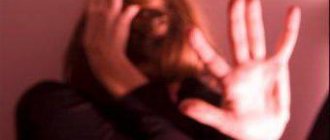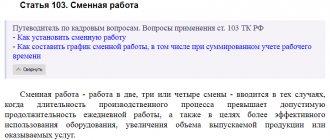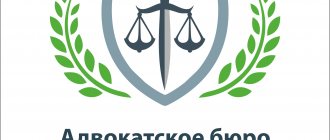ST 314 of the Criminal Code of the Russian Federation.
1. Malicious evasion of a person sentenced to restriction of freedom from serving a sentence is punishable by forced labor for up to one year or imprisonment for the same term.
2. Failure to return to a correctional institution of a person sentenced to imprisonment, who is allowed to leave the correctional institution, after the expiration of the departure period, or failure to appear at the appropriate body of the penal system of a person sentenced to imprisonment, who has been granted a deferment of execution of the sentence or serving the sentence, upon expiration of the deferment period - punishable by forced labor for up to two years or imprisonment for the same period.
3. Evasion of a person suffering from a disorder of sexual preference (pedophilia), which does not exclude sanity, from the application of compulsory medical measures against him is punishable by imprisonment for a term of up to one year.
Notes.
1. Criminal liability for committing an act provided for in the first part of this article occurs in the case when restriction of freedom is assigned to a person as an additional punishment.
2. Criminal liability for committing an act provided for in part three of this article occurs in the case when compulsory medical measures are applied to a person after serving his sentence.
Commentary to Art. 314 Criminal Code
1. The objective side is expressed in the form of inaction regarding: a) malicious evasion (Part 4 of Article 58 of the Penal Code of the Russian Federation) of a person from serving a sentence in the form of restriction of freedom (Part 1); b) failure to return to a correctional institution a person sentenced to imprisonment, who is allowed to leave the correctional institution, after the expiration of the departure period; c) failure to appear at the relevant body of the penal system of a person sentenced to imprisonment, who has been granted a deferment of execution of a sentence or serving a sentence, upon expiration of the deferment period (Part 2); d) evasion of a person suffering from a disorder of sexual preference (pedophilia), which does not exclude sanity, from the application of compulsory medical measures to him (Part 3).
Failure to appear, untimely return of a convicted person to the place of serving his sentence for reasons beyond his control (lack of communication, natural disaster, etc.) do not constitute a crime.
2. Special subject: a person sentenced to restriction of freedom imposed as an additional punishment in accordance with Note 1 to the article (Part 1); a person sentenced to imprisonment who is allowed to leave the correctional institution, or a person sentenced to imprisonment who is granted a deferment of execution of the sentence or serving the sentence (Part 2); a person suffering from a disorder of sexual preference (pedophilia), which does not preclude sanity, who has been assigned compulsory medical measures in accordance with Note 2 to the article after serving his sentence (Part 3).
Second commentary to Art. 314.1 of the Criminal Code of the Russian Federation
1. The objective side of the crime provided for in Part 1 of the commented article is expressed in non-compliance with the following requirements of administrative supervision:
a) failure to arrive without good reason upon the release of a person from places of imprisonment to his chosen place of residence or stay within the period determined by the administration of the correctional institution. Good reasons are an evaluative concept; they are determined based on the specific circumstances of violation of the specified deadlines;
b) unauthorized abandonment by this person of his place of residence or stay or actual location.
2. The subjective side is characterized by direct intent, and in relation to unauthorized leaving of place of residence, stay or actual location by a special purpose - evasion of administrative supervision.
3. The subject of the crime is special: a person in respect of whom administrative supervision has been established.
4. The objective side of the crime provided for in Part 2 of the commented article is expressed in repeated non-compliance with administrative restrictions or restrictions, associated with the commission of an administrative offense, the types of which are specified in the law.
5. The content of subjective features is similar to the content of the features specified in Part 1 of Art. 214.1 of the Criminal Code (there is no special purpose in this case).
Second commentary to Art. 314 of the Criminal Code of the Russian Federation
1. A convicted person is considered to be maliciously evading serving a sentence of restriction of freedom if:
a) committed a violation of the order and conditions of serving a sentence within one year after the application of a penalty in the form of an official warning;
b) refused to use technical means of control and supervision; c) disappeared from his place of residence and his whereabouts have not been established for more than 30 days;
d) did not arrive within the prescribed period at the criminal-executive inspection at the place of residence in accordance with the issued order (Article 58 of the Penal Code of the Russian Federation).
2. The subject of the crime is a person in respect of whom restriction of freedom is prescribed as an additional type of punishment.
3. Failure to return to places of imprisonment (Part 2 of Article 314 of the Criminal Code) is a specific form of evasion of punishment. Criminal liability arises if the convicted person does not return to prison, with the goal of evading serving imprisonment.
If a person who has been granted a deferment of execution of a court sentence or serving a sentence fails to appear at the appropriate body of the penal system, the crime will consist of evading the return of the convicted person to the appropriate institution to serve the remainder of the sentence.
4. The subject of the crime is a person sentenced to a sentence of imprisonment or serving it.
5. A person who has violated the order and conditions of compulsory treatment within one year after a written warning was applied to him, as well as a patient whose whereabouts are unknown to the criminal-executive inspection for more than 30 days, is considered to be evading compulsory medical measures.
6. The subject of the crime is special: a person suffering from a disorder of sexual preference (pedophilia), which does not exclude sanity.
7. The subjective side of all the above crimes is characterized by direct intent.
Commentary to Art. 314.1 of the Criminal Code
1. The objective side of the crime provided for in Part 1 is expressed in the form of inaction or action for: a) the failure to arrive without good reason of a person in respect of whom administrative supervision has been established upon release from places of imprisonment, to his chosen place of residence or stay at a place determined by the administration correctional institution term (this inaction consists of a violation of the obligation established in clause 1, part 1, article 11 of the Federal Law of April 6, 2011 N 64-FZ “On administrative supervision of persons released from places of imprisonment”); b) unauthorized abandonment by the specified person of the place of residence or stay (this action consists of a violation of the obligation established in clause 5, part 1, article 11 of the said Law). The objective side of the crime provided for in Part 2 is characterized by action and (or) inaction due to repeated failure by the specified person to comply with administrative restrictions or restrictions imposed on him by the court, in accordance with Part 1 of Art. 4 of this Law, associated with the commission by this person of an administrative offense against the order of management (provided for in Chapter 19 of the Code of Administrative Offenses of the Russian Federation, except for the offense enshrined in Article 19.24 of the Code of Administrative Offenses of the Russian Federation), or an administrative offense encroaching on public order and public safety (provided for in Chapter 20 of the Code of Administrative Offenses of the Russian Federation) RF), or an offense encroaching on the health, sanitary and epidemiological well-being of the population and public morality (enshrined in Chapter 6 of the Code of Administrative Offenses of the Russian Federation). In accordance with the note to the article, repeated failure by a supervised person to comply with the specified administrative restrictions or restrictions is recognized if this person has previously been brought to administrative responsibility for a similar act (under Article 19.24 of the Code of Administrative Offenses of the Russian Federation) twice within one year.
2. The crime is considered completed from the moment the specified action (inaction) is committed.
3. Valid reasons for the non-arrival of a person subject to administrative supervision upon release from prison within a certain period of time to his chosen place of residence or stay may be specific circumstances that prevented the performance of the duties specified in the order (for example, a natural or man-made emergency character, temporary lack of transport links, serious illness of this person) (clause 5 of the Resolution of the Plenum of the Supreme Court of the Russian Federation dated May 24, 2021 N 21 “On judicial practice in cases of crimes provided for in Article 314.1 of the Criminal Code of the Russian Federation”).
4. The subjective side is characterized by direct intent, and according to Part 1 - by the special purpose of evading administrative supervision.
5. Special subject: according to Part 1 - a person in respect of whom administrative supervision has been established, according to Part 2 - a person in respect of whom administrative supervision has been established and is being carried out, who was previously brought to administrative responsibility for an offense under Art. 19.24 Code of Administrative Offenses of the Russian Federation, twice within one year.
Third commentary to Article 314 of the Criminal Code of the Russian Federation
1. The commented article provides for liability for three independent elements of crime. According to Part 1, the direct object of the crime is the procedure established by regulations for the execution of an additional punishment imposed by the court in the form of restriction of freedom. The objective side of this crime is characterized by the commission of an act in the form of inaction - malicious evasion, i.e. failure to comply with the requirements imposed by the court on the convicted person when imposing an additional punishment in the form of restriction of freedom, the content of which is enshrined in Art. 53 of the Criminal Code as amended. Federal Law of December 27, 2009 N 377-FZ. Responsibility comes after the second written warning issued by the criminal-executive inspection body. The elements of the crime are formal, the end point is associated with the beginning of malicious evasion. The subjective side is characterized by guilt in the form of direct intent. A special subject of a crime is a convicted person who has been given an additional punishment in the form of restriction of freedom.
2. According to Part 2 of the commented article, the immediate object is the procedure established by regulatory acts for the execution of a sentence imposed by the court in the form of imprisonment, taking into account the existing deferments. The objective side consists of inaction, expressed in the failure to return a person sentenced to imprisonment to the place of serving the sentence after the expiration of the period of departure or in the failure to appear at the relevant body of the penal system of a person who has been granted a deferment of execution of the sentence or serving the sentence after the expiration of the deferment period. The crime is considered completed from the moment the convicted person actually fails to return to the place of serving the sentence of imprisonment within the period established by the administration of the correctional institution or the court. The subjective side in this case is characterized by guilt in the form of direct intent. The subject of the crime is a convicted person who has been sentenced to imprisonment and is allowed to leave the correctional institution or who has been granted a deferment of the execution of the sentence or serving the sentence.
3. According to Part 3 of the commented article, the direct object of the crime is the established procedure for applying compulsory medical measures to a person suffering from a disorder of sexual preference (pedophilia), which does not exclude sanity (see commentary to Article 97 of the Criminal Code). The objective side consists of the inaction of a person - the evasion of a convicted person released after serving his sentence from the application of compulsory medical measures against him. It appears that liability begins after just one failure to appear without good reason at the relevant medical institution. The corpus delicti is formal.
The subjective side is characterized by guilt in the form of direct intent and a special purpose - the desire to evade appropriate medical measures.
A special subject of a crime is a convicted person, to whom, after serving his sentence, the court has imposed compulsory medical measures. ‹ Article 313. Escape from a place of imprisonment, from arrest or from custodyUp Article 314.1. Evasion of administrative supervision or repeated failure to comply with restrictions or restrictions established by the court in accordance with federal law ›
Commentary on Article 314.1 of the Criminal Code of the Russian Federation
1. The object of the crime is the relationship that ensures the implementation of administrative supervision.
Administrative supervision is understood as monitoring carried out by internal affairs bodies over the compliance of a person released from prison with temporary restrictions on his rights and freedoms established by the court, as well as over the fulfillment of the duties assigned to him. It is established to prevent crimes and other offenses, to provide individual preventive influence in order to protect state and public interests in relation to a person released or released from prison and who has an outstanding or unexpunged conviction for committing:
1) a grave or especially grave crime;
2) crimes in case of repeat crimes;
3) an intentional crime against a minor.
The grounds for administrative supervision are differentiated depending on to whom it is established. A person released from prison may be subject to it if, while serving his sentence in prison, he was recognized as a persistent violator of the established order; a person released from prison - if within one year he commits two administrative offenses against the order of government and (or) administrative offenses encroaching on public order and public safety, public health and public morality, or more.
It must be borne in mind that in relation to persons convicted of committing a crime against the sexual integrity and sexual freedom of a minor, as well as for committing a crime with a dangerous or especially dangerous recidivism, administrative supervision is established regardless of the specified grounds.
The period of administrative supervision depends on the category of person in respect of whom it is established (Article 5 of the Federal Law of April 6, 2011 N 64-FZ “On administrative supervision of persons released from places of imprisonment” <1>), if there are grounds it may be extended or terminated early.
——————————— <1> NW RF. 2011. N 15. Art. 2037.
During administrative supervision, administrative restrictions are applied, which can be partially canceled or, conversely, supplemented.
2. The objective side is expressed in non-compliance with the following requirements of administrative supervision:
a) failure to arrive without good reason upon the release of a person from places of deprivation of liberty to his chosen place of residence or within the period determined by the administration of the correctional institution. Good reasons are an evaluative concept; they are determined based on the specific circumstances of violation of the specified deadlines;
b) unauthorized abandonment of the person’s place of residence or stay.
The responsibilities of the supervised person are enshrined in Art. 11 of the Federal Law “On administrative supervision of persons released from prison.”
The crime has a formal composition and is considered completed from the moment one of these acts is committed.
3. The subjective side is characterized by direct intent, and in relation to unauthorized leaving of place of residence or stay and a special purpose - evasion of administrative supervision.
4. Special subject of a crime - a person in respect of whom administrative supervision has been established.
Judicial practice: sentences and punishment under Art. 314 of the Criminal Code of the Russian Federation
- Decision of the Supreme Court: Determination N 203-APU17-21... THE SUPREME COURT OF THE RUSSIAN FEDERATION Case No. 203-APU17-21 APPEAL DECISION Moscow August 31, 2021 Judicial Collegium for Military Personnel of the Supreme...
- Decision of the Supreme Court: Resolution No. 310P13 dated... DECISION OF THE PRESIDIUM OF THE SUPREME COURT OF THE RUSSIAN FEDERATION Case No. 310-P13 Moscow January 23, 2014 Presidium of the Supreme Court of the Russian Federation...
- Judicial Collegium for Criminal Cases, appeal:... THE SUPREME COURT OF THE RUSSIAN FEDERATION Case No. 72-APU 17-21 APPEAL DECISION Moscow October 04, 2021 Judicial Collegium for Criminal Cases...
- Ruling of the ECtHR dated 02/14/2017 EUROPEAN COURT OF HUMAN RIGHTS THIRD SECTION CASE “MASLOVA VS. RUSSIAN FEDERATION” (Complaint No. 15980/12) JUDGMENT…
- Resolution of the Plenum of the Supreme Court of the Russian Federation dated... PLENARY OF THE SUPREME COURT OF THE RUSSIAN FEDERATION DECISION dated December 27, 2002 N 29 ON JUDICIAL PRACTICE IN CASES OF THEFT,...
- Decision of the Supreme Court: Determination No. 38-АПУ17-2 dated... THE SUPREME COURT OF THE RUSSIAN FEDERATION No. 38-АПУ17-2 APPEAL DECISION Moscow March 1, 2021 Judicial Collegium for Criminal Cases of the Supreme Court...
- Appeal ruling: Judicial Collegium for... THE SUPREME COURT OF THE RUSSIAN FEDERATION APPEAL DECISION dated July 11, 2021 N 7-APU19-5SP Judicial Collegium for criminal cases of the Supreme Court...
- Resolution of the Plenum of the Supreme Court of the Russian Federation dated... PLENAUM OF THE SUPREME COURT OF THE RUSSIAN FEDERATION DECISION dated May 24, 2021 N 21 ON JUDICIAL PRACTICE IN CASES OF CRIMES,...
- Resolution of the Plenum of the Supreme Court of the Russian Federation dated... PLENARY OF THE SUPREME COURT OF THE RUSSIAN FEDERATION DECISION of November 15, 2021 N 48 ON THE PRACTICE OF APPLICATION BY COURTS OF LEGISLATION GOVERNING FEATURES...
- Resolution of the Presidium of the Supreme Court of the Russian Federation dated... PRESIDIUM OF THE SUPREME COURT OF THE RUSSIAN FEDERATION DECISION dated December 5, 2018 N 126-P18 ON RESUMING PROCEEDINGS IN THE CASE DUE TO NEW...




